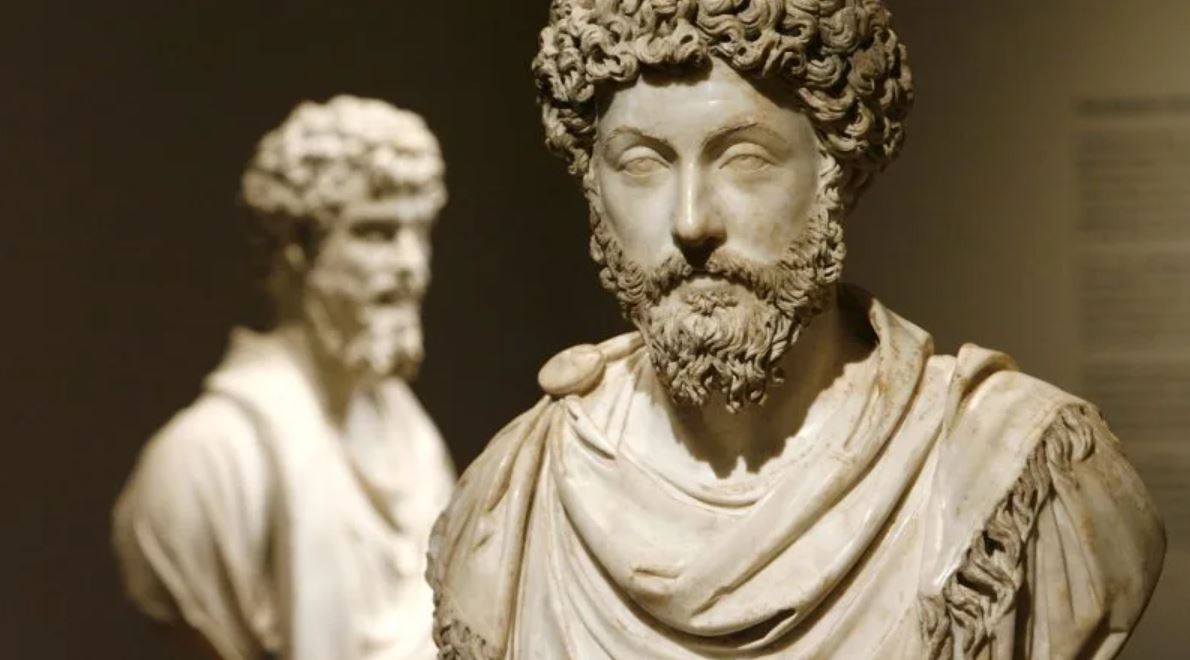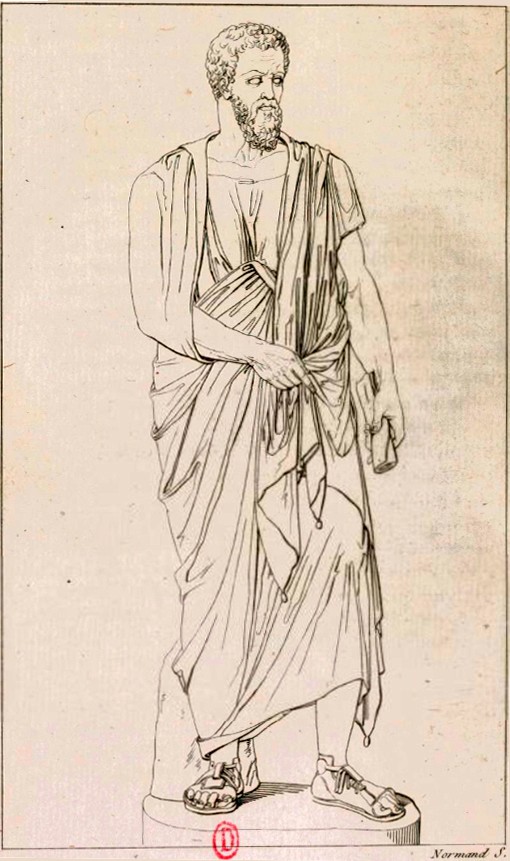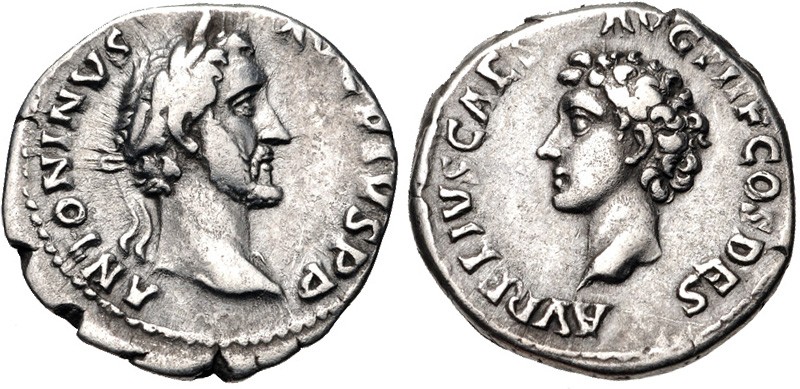by William B. Irvine, Professor of Philosophy, Wright State University
Marcus Aurelius was arguably one of the greatest Roman emperors. He is also the author of one of the primary Stoic texts, the Meditations. As far as scholars can tell, it was intended as a private journal, in which he recorded his observations about the people around him, as well as advice to himself on how to deal with those people.
For someone curious about what it means to behave in a Stoical manner, Book One of the Meditations is essential reading. In just a few pages, Marcus tells us what he has learned from the various mentors he has been blessed with in the course of his life.
One of these mentors was Stoic philosopher Maximus, who had mastered, Marcus says, “the art of being humorous in an agreeable way.” From him, Marcus learned the importance of maintaining “cheerfulness in all circumstances, as well as in illness; and a just admixture in the moral character of sweetness and dignity, and to do what was set before me without complaining.” So much for the common belief that the Stoics were glum, pessimistic, emotionless individuals! This was a man, says Marcus, about whom “everybody believed that in all that he did he never had any bad intention.”
From Catulus, another Stoic philosopher, Marcus learned not just to love his children but to love them “truly.” He also acquired useful strategies for dealing with other people. He learned, for example, that when a friend unjustly blamed him of something, he should not get angry but should instead try to restore that friend to “his usual disposition.” Along similar lines, the Stoic philosopher Rusticus taught him that when someone insulted him or wronged him, he should “be easily disposed to be pacified and reconciled, as soon as they have shown a readiness to be reconciled.” If you can’t tolerate the occasional vexatious behavior of friends, you probably don’t have any!
From Diognetus, the philosopher who introduced him to Stoicism, Marcus learned not to busy himself about “trifling things.”
From an unnamed tutor—he refers to this individual as his “governor”—Marcus learned “endurance of labor, and to want little, and to work with my own hands, and not to meddle with other people’s affairs, and not to be ready to listen to slander.”
From the philosopher Sextus, he learned “to look carefully after the interests of friends, and to tolerate ignorant persons, and those who form opinions without consideration.” Sextus, he tells us, “never showed anger or any other passion, but was entirely free from passion.” This makes Sextus sound like a wooden being, but this apparently wasn’t the case, inasmuch as Marcus also describes him as being “most affectionate.”
Although Sextus possessed considerable knowledge, he did not display it in an ostentatious manner, a trait that Marcus thought was admirable. Along similar lines, Marcus appreciated the subtle but effective manner in which the scholar Alexander corrected the speech of those he encountered. If they uttered “a barbarous or solecistic or strange-sounding expression,” Alexander would not mock them; he instead attempted “dexterously to introduce the very expression which ought to have been used,” so the person could learn the correct usage without having been chided for misusing language.
Marcus’s mentors also taught him that, besides not flaunting his own knowledge, he should not begrudge others their knowledge. He notes that Antoninus Pius—who was both Marcus’s adoptive father and emperor of Rome just ahead of Marcus—was “most ready to give way without envy to those who possessed any particular faculty, such as that of eloquence or knowledge of the law or of morals, or of anything else; and he gave them his help, that each might enjoy reputation according to his deserts
From the philosopher Alexander, who was a Platonist rather than a Stoic, Marcus learned not to form the habit of telling people that he had no time for leisure, or of continually excusing neglect of loved ones by claiming that he had important business to attend to.
One last comment is in order: it was the practice of Stoicism that led Marcus to actively seek out mentors. A Stoic takes his life to be a work in progress, so he is grateful for any insights other people can provide him. Most people don’t seek mentors, for the simple reason that they don’t think they have any important lessons left to learn.












One comment
Words that can correct a lot of future mistakes of any person if they understand correctly. I hope I can understand. https://www.youtube.com/watch?v=HNo_cafMjAg
Our apologies, you must be logged in to post a comment.